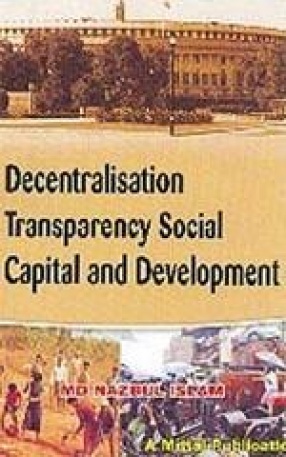In consonance with the global trend, India has been looking upon decentralisation as the golden means for ushering improvement in the living standards of downtrodden. The author, in this volume, has made an earnest attempt towards uncovering how decentralisation mattered in grass roots level development by analysing the West Bengal experience. The main thrust of the book is to capture the whole process of development at the grass roots level by focussing on decentralised institutions in the context of people’s participation, accountability, transparency being considered as conditions internal and social capital as external. The volume focuses on the question of whether social capital plays a significant role in ensuring effective governance. If so, to what extent does social capital ensure effective governance and what factors motivate the formation of social capital and sustain it? The author also has made an attempt to understand social capital through a relational network that can facilitate some tangible resources or capital which influence directly or indirectly the process of governance for promoting development. This volume will be of great relevance and very useful to young social scientists, policy makers, and developmental activists who are eager to understand the contours of contemporary development mechanism and to prescribe policy measures for strengthening governance and development at the local level.
Decentralisation, Transparency, Social Capital and Development
In stock
Free & Quick Delivery Worldwide
reviews
Bibliographic information
Title
Decentralisation, Transparency, Social Capital and Development
Author
Edition
1st ed.
Publisher
ISBN
817099988X
Length
xvi+272p., Tables; Maps; Figures; 22cm.
Subjects





There are no reviews yet.